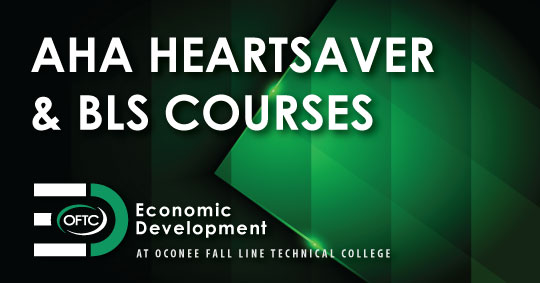AHA Heartsaver & BLS Courses

The American Heart Association (AHA) offers a variety of training programs for first aid, CPR (Cardiopulmonary Resuscitation), and AED (Automated External Defibrillator) certification. These programs are designed to equip individuals with the knowledge and skills needed to respond effectively to medical emergencies, including cardiac arrest, choking, and other life-threatening situations.
Here's an overview of the courses offered by the AHA:
-
Heartsaver® First Aid CPR AED: This course is designed for individuals who need training in basic first aid, CPR, and AED use. It covers topics such as recognizing and responding to emergencies, providing first aid for various injuries, performing CPR on adults, children, and infants, and using an AED.
-
Heartsaver First Aid Only: This course is designed for individuals who need training in basic first aid, It covers topics such as recognizing and responding to emergencies and providing first aid for various injuries.
-
Heartsaver CPR AED Only: This course is designed for individuals who need training in CPR and AED use. It covers topics such as recognizing and responding to emergencies and performing CPR on adults, children, and infants, and using an AED.
-
Basic Life Support (BLS) for Healthcare Providers: This course is specifically designed for healthcare professionals and covers CPR techniques for adults, children, and infants, as well as the use of AEDs and other advanced cardiac life support skills. It is often required for healthcare workers such as nurses, doctors, and emergency medical personnel.
-
BLS Instructor. Becoming a BLS instructor allows you to educate individuals and organizations on essential lifesaving techniques, empowering them to respond confidently and effectively in emergency situations. It's a valuable skill set that can make a significant difference in saving lives within your community.
These courses typically include both classroom instruction and hands-on practice with manikins and AED trainers to simulate real-life scenarios. Upon successful completion of the course and passing the certification exam, participants receive an AHA certification card valid for a certain period (usually two years), after which recertification is required to maintain proficiency.
Medic First Aid is a widely recognized provider of workplace health and safety training programs, including first aid, CPR, and AED certification courses. Their programs are designed to equip individuals and organizations with the knowledge and skills necessary to respond effectively to medical emergencies in various settings, such as workplaces, schools, and community environments.
